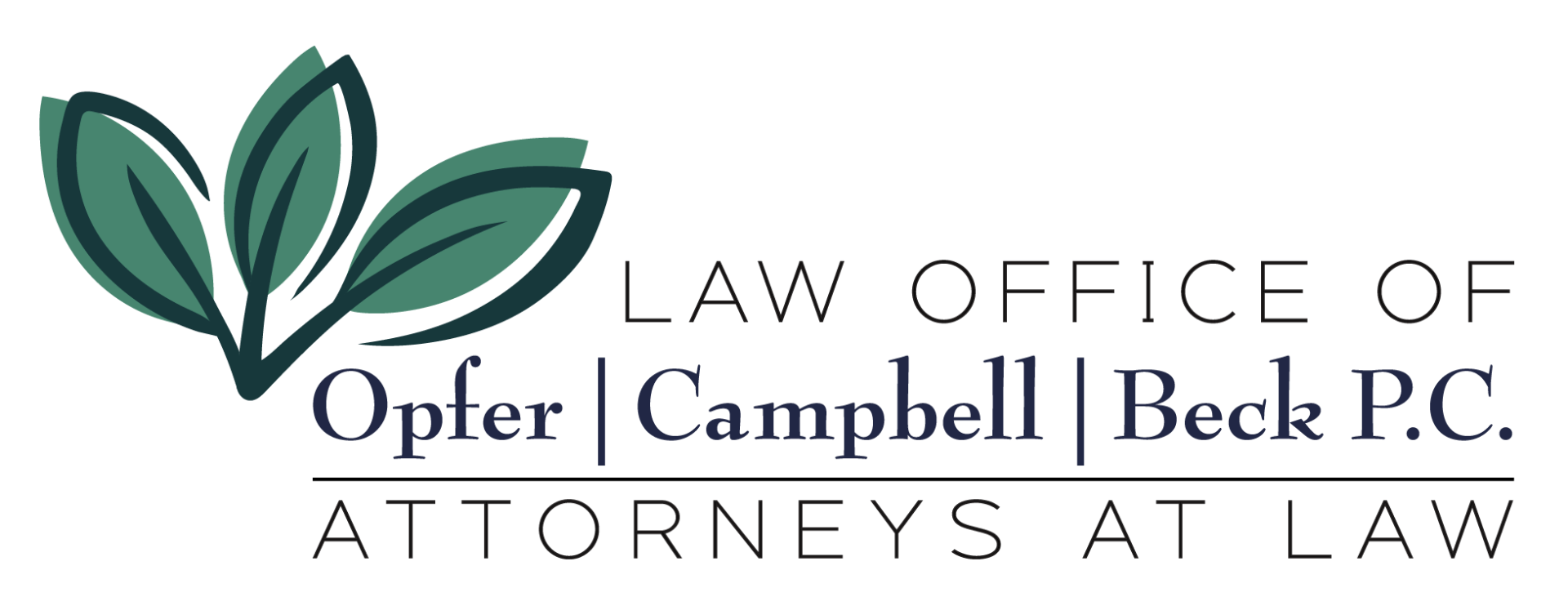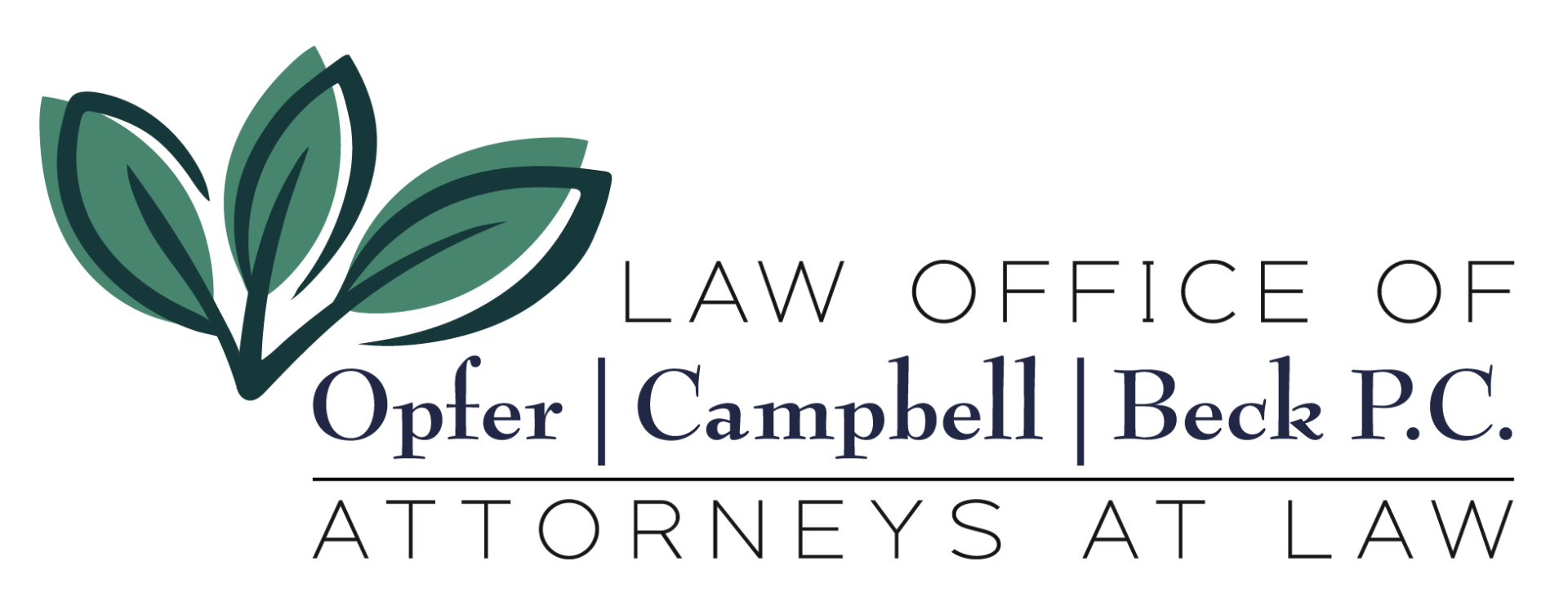Practice Areas
2024 Corporate Transparency Act
Current Guidelines for Business Entities

On January 1, 2024, the federal Corporate Transparency Act (CTA) took effect, extending nationwide and implementing a new agency called the Financial Crimes Enforcement Network (FinCEN). The purpose of this notice is to provide you key information about the CTA, reporting obligations to FinCEN, and general guidelines for next steps. If you have questions about this law or need assistance with your registrations, please do not hesitate to contact our office.
Who does the CTA affect? Currently, the CTA affects an overwhelming majority of entities in the United States. Unless revised later, “Reporting Entities” that must register include:
- Limited Liability Companies (*including Single-Member LLCs and holding companies set up for rental properties and investments)
- General Partnerships and Limited Liability Partnerships
- Corporations (regardless of whether operating as C-Corp or S-Corp)
- Any nonprofit organizations or associations that do not file taxes as 501(c) entities (for example, Homeowner Associations that file under Section 528 must comply with the CTA)
- Any entity “created by the filing of a document with a Secretary of State or any similar office under the law of a State or Indian Tribe.”
*Sole proprietorships do not need to register unless the proprietorship filed with the Secretary of State.
What entities are exempt from the CTA? Currently, there are 23 categories of entities that do not need to register, including government agencies, financial / securities / insurance institutions, utility companies, and banks. As a general rule, privately held companies not operating in the financial sector will need to register, but for a complete list of exempt entities, please review the FinCEN Small Entity Compliance Guide linked below.
Why would I need to register? FinCEN requires every “Beneficial Owner” of an entity to register “Beneficial Owner Information” (BOI) about the company. This includes each owner’s full legal name, personal / residential address, birthday, and a copy of a current and valid government-issued identification, such as Driver’s License or passport.
Beneficial Owners currently include individuals holding at least 25% ownership in an entity, and/or individuals exhibiting “substantial control” over the entity, even if that person does not have any ownership (for example, a director of a corporation, an appointed legal manager, a fractional officer). The determination of “substantial ownership” is subjective (right now), so we recommend you err on the side of caution and include BOI registrations for individuals who could possibly qualify.
Beneficial Owners do not include trusts holding an interest (but the Grantors and/or Trustees of the trust will need to file BOI individually), as well as corporate entities holding an interest in another company (because that other corporate entity will have its own CTA registrations).
How will BOI be used, and who can access it? The purpose of FinCEN is to collect data for Reporting Entities, in an effort to combat corporate financial crimes. As currently structured, any BOI will only be accessible by the government agencies and law enforcement, court systems, and financial institutions (with consent from customers). If you submit BOI for any companies, your information will not be accessible by the general public or even by other members of that company.
When do I need to register? There are two key deadlines for CTA registration:
Entities created *before* January 1, 2024: BOI must be submitted by December 31, 2024.
Entities created January 1, 2024 or later: BOI registrations must be completed within 30 days of the entity formation. In addition, both Beneficial Owners and the “Company Applicant” must submit BOI. For example, if your company was registered by an attorney or CPA, they need to submit their information in addition to yours, within the 30-day window.
What happens if my information changes? Currently, the CTA requires any Beneficial Owner changes, such as a new home address, to be submitted to FinCEN within 30 days of the change.
What happens if I fail to comply? There are currently severe penalties for failure to comply. FinCEN can impose fines of up to $500 per day, up to a maximum $10,000. Additionally, the law currently authorizes up to two years’ jail time for noncompliance. It is **absolutely critical** that if you have questions or need assistance with any registration, you contact someone to assist you.
How do I complete BOI registration? The best place to start is by visiting www.fincen.gov/boi. The website has numerous resources, and two electronic options for submitting BOI. Importantly, once an entity submits its initial report (including a single owner submitting their BOI), then any subsequent submissions (such as the next owner filing their own report) must be made through the “Update” report option. If any information changes about the Reporting Entity or about any Beneficial Owner, then there is a separate link to “Correct” a report.
As of now, FinCEN does not contain any options to notify that a company has dissolved, or that a Beneficial Owner is no longer an owner. We expect these changes to roll out as FinCEN improves the filing systems.
Is there a fee to file with FinCEN? NO.
Can Opfer | Campbell | Beck P.C. help with BOI registration? YES. Our office is happy to assist you with any necessary registrations, or simply if you have questions about complying with the CTA. To handle any filings, we will assess a fee of $100.00 for the initial report per Reporting Entity, and then $50.00 for any additional reports for that same Reporting Entity (e.g. to submit additional reports for other owners). If you have multiple Reporting Entities, we will assess $100.00 for the initial report for each.
If you want assistance, you will need to provide us the following:
- Reporting Entity legal name (as reported on tax returns) and EIN, if our office did not set up the entity for you
- For all Beneficial Owners:
- Full legal name;
- Home address (cannot be a P.O. Box);
- Birthday;
- Full Social Security Number;
- Copy of Driver’s License or U.S. Passport; and
- Description of ownership interest held in the entity (such as ___ stocks of a corporation, or ___% of an LLC).
- **Please do not email this sensitive information. Our office can provide you a secure portal to upload any files to us, and you may also provide key information by phone.
Save Your Transcripts!! When you complete any BOI registrations, including submitting updates, the website will provide you a PDF transcript that you can save to confirm your submission. We highly, highly recommend you save this transcript somewhere, and provide it as needed to any professionals who can hold a copy for you (such as your accountant or attorney). If there is ever a question later whether you complied, the transcript will be key to proving you did.
Is there anything else I should know? Even though it was enacted in 2021, the CTA only became effective in January 2024, and the systems and rules are still very new. We expect changes and clarifications to happen over the next several months, including possibly more entities becoming exempt from filing. The most important thing to understand is your specific deadline to file, whether being 30 days or by December 31, and guaranteeing that you complete your BOI registrations by the deadline. Additionally, there may be specific issues related to your business, including who qualifies as a "Beneficial Owner" and whether the entity is exempt from reporting. This information is very general and subject to change, so we recommend you review the Small Entity Compliance Guide below and stay informed about the status of this law.












